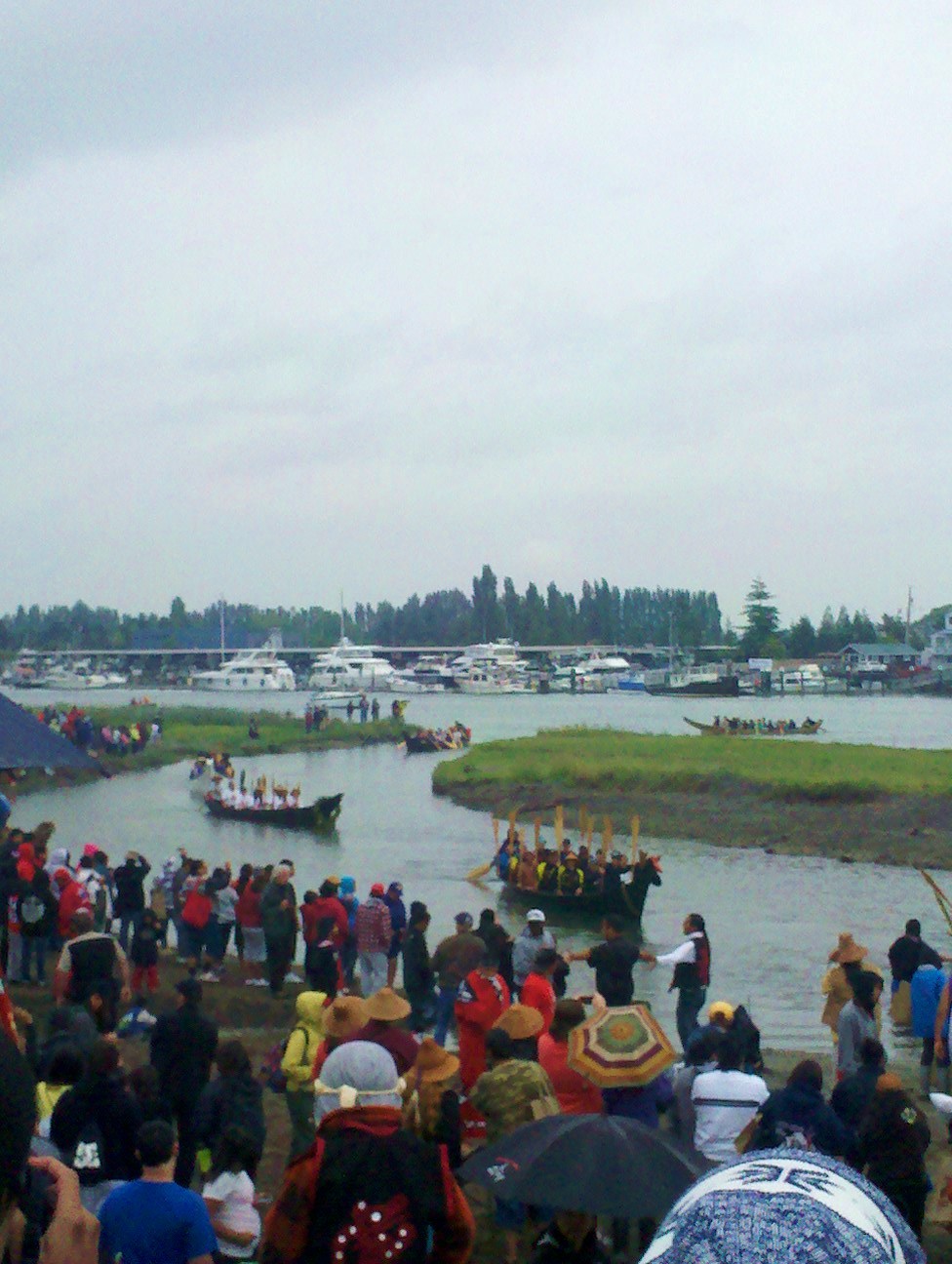
The Potlatch Fund offers this tour to introduce individuals to both the successes and challenges faced by Tribal communities and aim to intentionally show the diverse nature of the Tribal communities and Native organizations that comprise Northwest Indian Country.
Though past funders tours have been blessed with wonderful weather, we traveled through thunder and lightening to reach our destination - only to have the sun pop out just as we were boarding our bus for the return trip to Seattle.
Below is a recap of our journey, courtesy of the Potlatch Fund:
We had the opportunity to see three distinctly different Tribal communities. Tulalip was created as a reservation as a result of the treaties of the 1850’s when a number of different Tribes and Bands were relocated to the land we toured. Tulalip has the most generous land base of the three Tribes we visited, and is also the largest community overall. The overall size of the community and the ongoing issues of trying to become one distinct Tribal entity as opposed to an imposed confederation are major issues for Tulalip.
Stillaguamish, re-gained federal recognition in 1976, and has had to purchase the vast majority of its land back through private land sales in order to best serve its members. We also heard that once land has been acquired there is the additional complexities involved in bringing the lands into “trust” so that they can be preserved in perpetuity.
Swinomish has more of a village feeling to its 2 square mile reservation which allows people to be able to easily move around, but also severely limits options for growth. The surrounding communities of Marysville, Arlington and La Conner are, likewise, very diverse with different economic bases and history of development.The Potlatch Fund funded 32 of the Canoe Families that arrived in Swinomish on Monday - some who had journeyed from as far as California. The journey was profiled in The New York Times that very same morning - you can read the article here!
EPIP members Heather Miller (Potlatch Fund), Dorothy Longbrake (The Longbrake Family Foundation), Sarah Studer (EPIP Board of Advisors and Seattle co-chair), Katrin Wilde (The Channel Foundation) and Zeke Spier (EPIP Board of Advisors and Social Justice Fund NW) embrace the rain and enjoy the day!
Do you like this post?

Be the first to comment
Sign in with